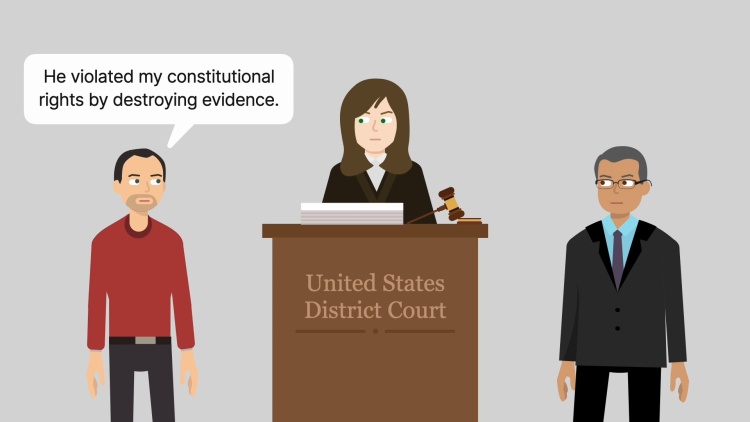Heck v. Humphrey
United States Supreme Court
512 U.S. 477 (1994)
- Written by Robert Schefter, JD
Facts
Roy Heck (plaintiff) was serving a 15-year jail sentence for his conviction of voluntary manslaughter in Indiana state court. While his appeal was pending in state court, Heck filed this suit in federal district court under the Civil Rights Act of 1871, 42 U.S.C. § 1983, against the state prosecutors James Humphrey and Robert Ewbank, as well as Michael Krinoph, a state police investigator (defendants). The suit alleged that the defendants conducted an illegal investigation, knowingly destroyed evidence, and used an illegal voice identification procedure at trial. Heck sought compensatory and punitive monetary damages, but did not seek release from custody. The district court dismissed the action without prejudice, because it found that the claims challenged the legality of Heck’s confinement. Heck appealed to the United States Court of Appeals for the Seventh Circuit. While the § 1983 appeal was pending, the Indiana Supreme Court upheld the conviction. Heck had also filed federal habeas corpus claims, which were denied and affirmed on appeal by the court of appeals. The court of appeals then denied his § 1983 appeal, adopting the rationale of the district court. The United States Supreme Court granted certiorari on the § 1983 claim for damages.
Rule of Law
Issue
Holding and Reasoning (Scalia, J.)
Concurrence (Thomas, J.)
Concurrence (Souter, J.)
What to do next…
Here's why 907,000 law students have relied on our case briefs:
- Written by law professors and practitioners, not other law students. 47,100 briefs, keyed to 996 casebooks. Top-notch customer support.
- The right amount of information, includes the facts, issues, rule of law, holding and reasoning, and any concurrences and dissents.
- Access in your classes, works on your mobile and tablet. Massive library of related video lessons and high quality multiple-choice questions.
- Easy to use, uniform format for every case brief. Written in plain English, not in legalese. Our briefs summarize and simplify; they don’t just repeat the court’s language.





